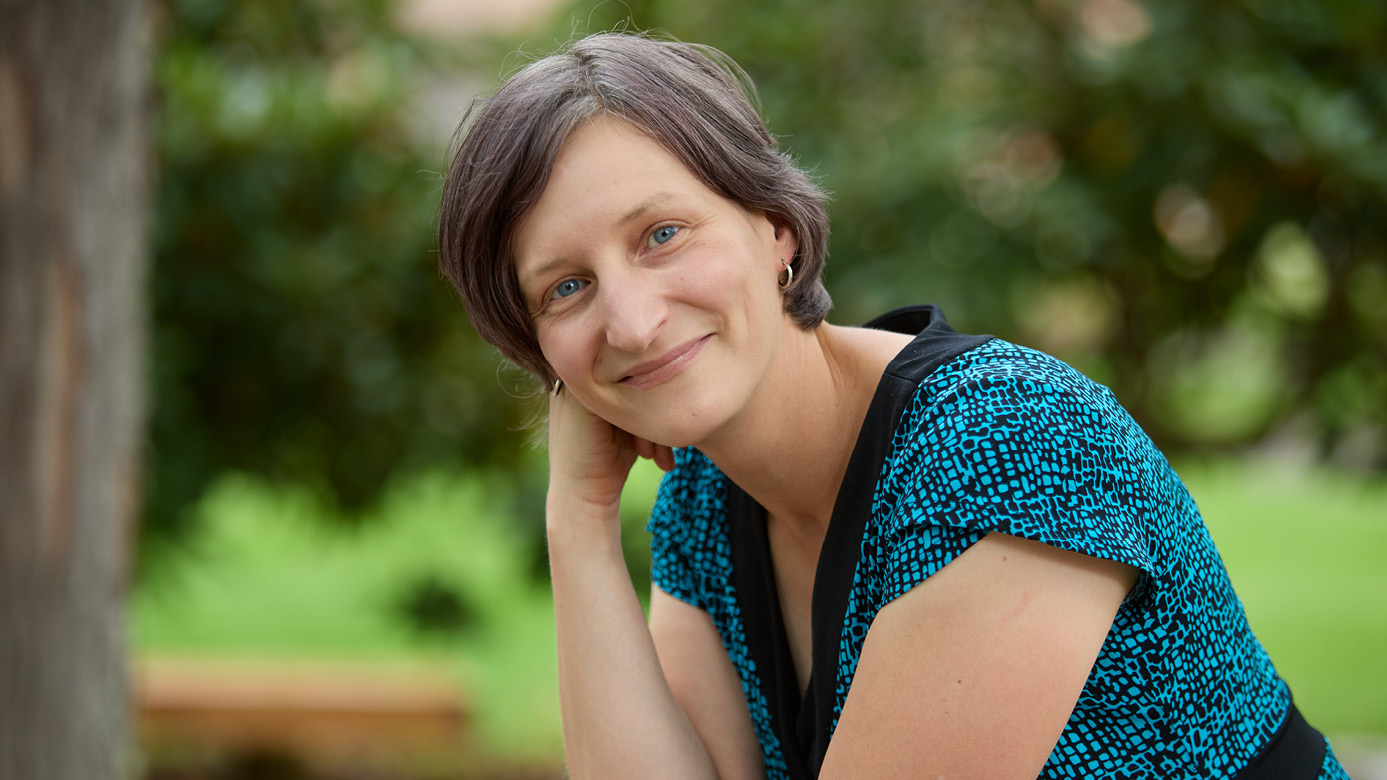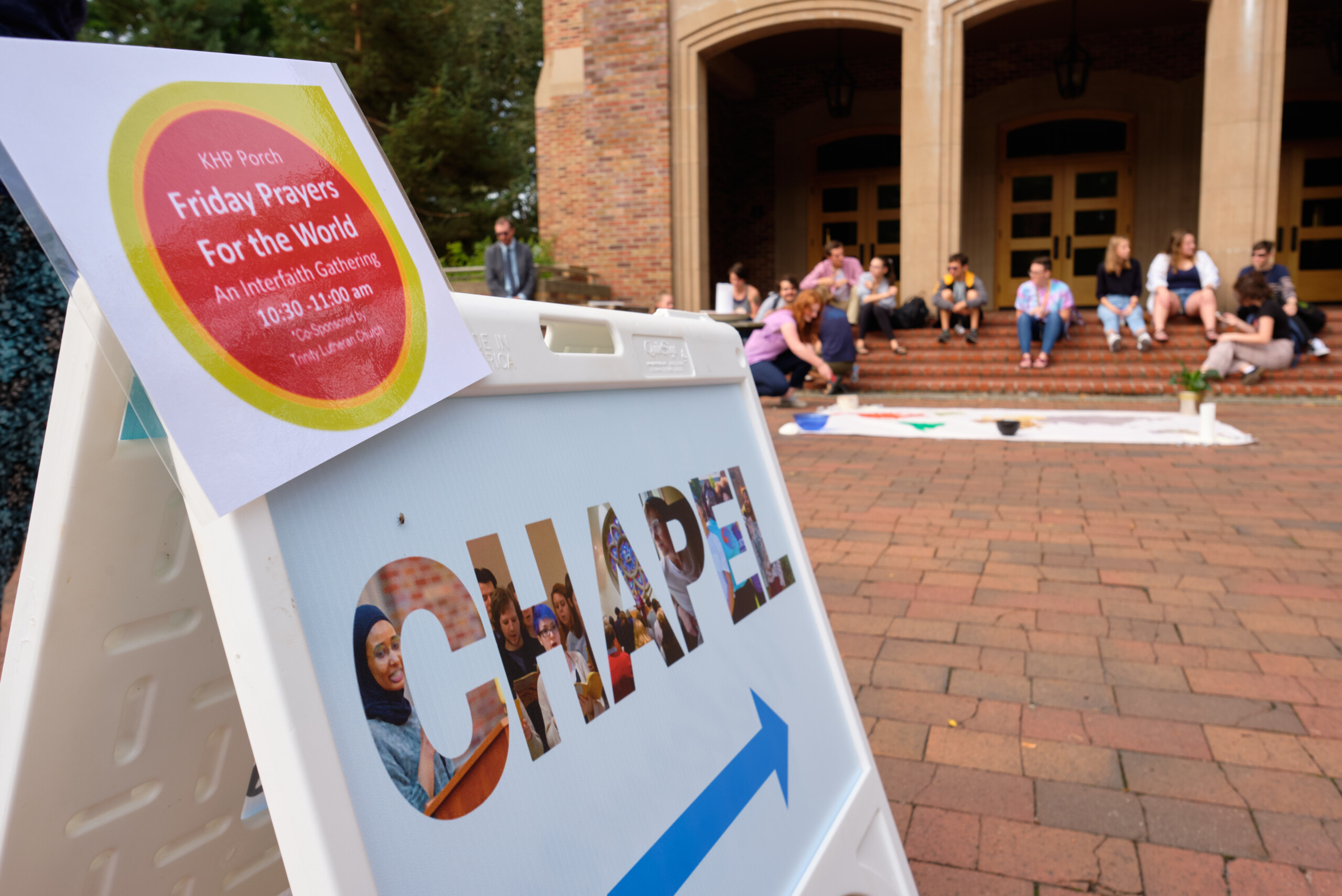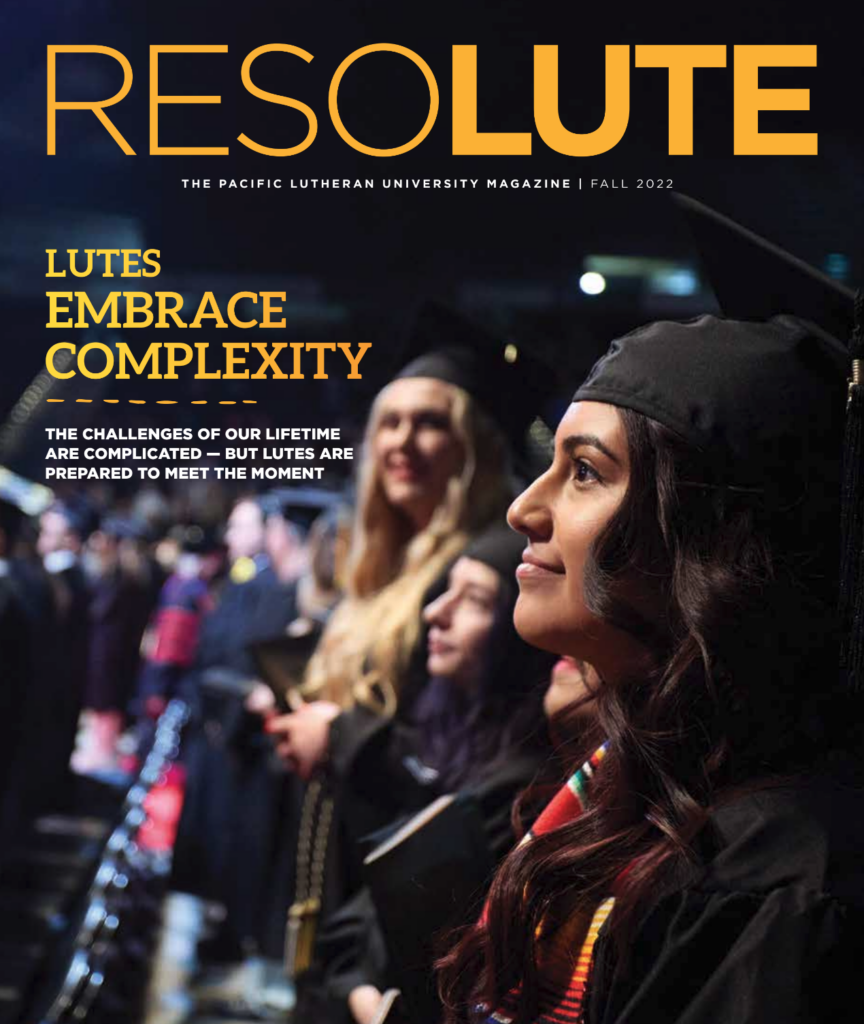Rooted and Open: Rev. Jen Rude talks about centering community, spiritual diversity, and Campus Ministry

By Zach Powers
ResoLute Editor
In the summer of 2016, Rev. Jen Rude and her spouse Deb packed their things and drove two thousand miles West on Interstate 90 to a new home and a new call. Six-and-half years later, Rude is no longer PLU’s “new pastor from Chicago.” Now she’s known around campus simply as Pastor Jen: a thoughtful spiritual teacher, a tireless advocate for equity and inclusivity, and a beloved and integral campus leader.
At ELCA institutions like PLU we talk a lot about our Lutheran commitment to being “rooted and open.” How do you think about this call and how does it show up in the work of Campus Ministry?
I think rooted and open has always been a Lutheran value. I always tell our students that Lutherans aren’t that concerned about being right, or about getting people to believe all the same things. Rather, we’re rooted in a tradition of ongoing reformation. And, not only are we open to other ideas and perspectives, but there’s a longing and a need for those varied perspectives. I’ve heard other people talk about it even as rooted and reaching. So not just being open, but actively reaching or seeking.
One way we try to live out this “rooted and open” commitment is through our three weekly Chapel gatherings. Wednesday Chapel is the most rooted in Lutheran traditions. We sing out of the Lutheran worship book, we read scripture, we have some sort of message. And we also hope it’s open and invitational to those who may be new to this form of worship. Our Monday Chapel leans toward the open side, as we explore spiritual practices that might come from a lot of traditions, including and beyond Christianity. Friday Chapel is all about prayer and sort of combines the two, because prayer is so central to the Lutheran tradition and we also incorporate prayers from other faith traditions and cultures as we pray for the world.
What does “centering community” mean to you?
I think it’s both a gift and a challenge. The gift is, you’re not alone. There’s a community of people to support you and care about you. It’s not all up to you. Then I think the challenge is that it’s not just about you. It’s about the larger community. We’re interconnected, and we’re called to care for one another.
There’s a religious connotation about a centering or a grounding, which is about an orientation. So centering community is an orientation to community. I also think about centering in the sense of belonging — like I am accountable, connected and care about you. I’m not just dipping in and out, I understand that your wellbeing is wrapped up with mine.
That’s a really helpful way to think about it. Does that connect with interfaith or other community building work Campus Ministry is a part of?
I’m sort of moving away from using the term “interfaith” and talking more about religious and spiritual diversity. Thinking about how we engage and embrace religious and spiritual diversity.
That’s really interesting. How do you differentiate between interfaith and religious and spiritual diversity?
Interfaith assumes that someone has a tradition, and then they come together and communicate across religious and perhaps cultural differences. More and more, the reality seems to be that our students don’t have an established religious identity. This work isn’t necessarily about connecting a Buddhist, a Christian, a Muslim, and a Jew in interfaith dialogue, because that’s not usually who we have engaging with Campus Ministry.
Often students are connecting with us and saying things like I don’t know, but I’m curious; I find the sacred in nature; or I feel connected to something bigger than me, but I don’t know how to think about that. So they’re not affiliated with a specific religion, but it’s not as though they aren’t religious or spiritual.
It’s my understanding that many of our students who are religious stay active in the nearby faith communities they grew up in, or join nearby faith communities if they’ve moved to this area to attend PLU. How does Campus Ministry work to complement the faith and spiritual development for these students?
That is true, and I think complementing is the right word. For example, a lot of congregations in the area do worship really well, including Trinity Lutheran Church right across the street from campus. They’ve got a full music program and they’ve got intergenerational members and community. We can’t offer that. Instead, we think about what we can uniquely do on campus.
What are a few examples of programs or activities that have come from that thinking?
A lot of our students are ripe with questions at the intersection of faith and daily life. They want to reflect on how their faith and spirituality connect with the societal or even environmental challenges they’re learning about in their classrooms. We try to keep this thinking in mind when we’re planning chapel services, and it’s also inspired things like our Reflect, Learn, Celebrate Queer Faith discussion series and a recent Bible study about decolonizing scripture.
This is your seventh year as university pastor. How has the way you think about your unique role on campus changed become more nuanced, or perhaps even changed a bit, over time?
When I first showed up I was focused on getting to know the community, designing Campus Ministry programs, etc. Now I’m thinking a lot more about how I’m part of the ecosystem of student life and the university. I’m thinking about how I can embed myself and Campus Ministry in places where people are already gathered. This can be as simple as sharing a reflection at a faculty meeting. Or joining the Center for DJS (Diversity, Justice and Sustainability) in work they are doing around student leadership and finding ways to collaborate.
When I started here I also felt like I needed to be really student-centered. Many students were ready to embrace me in this role as soon as I was introduced as the campus pastor. It took faculty and staff a bit longer to build a comfort level. Now I’ve been here long enough that hopefully I’ve earned some credibility and trust. Now I have rich relationships with faculty and staff members and I think of this as part of my role as pastor. I feel like my role is one of the few positions on campus that serves faculty, staff and students. I mean, Campus Ministry is part of student life, but I’m the university pastor. I’m here to support — and to center — our entire campus community.




